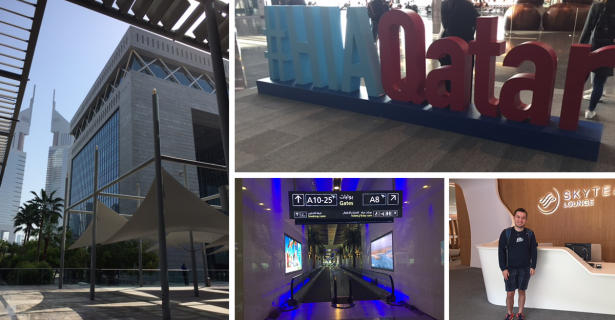With the summer beginning to wind down, my research in the UAE and Qatar comes to an official close. As I noted in prior posts, the UAE and Qatar have seen some strained corporate relations since June 2017, all of which have culminated in a Cold War-like aura surrounding the Gulf Cooperation Council (GCC) states. This aura is present throughout society, but so too is everyone’s favorite topic: politics.
I find that while the rift in the region is likely to remain in place for the foreseeable future, Qatar has handled the division more effectively. The Qataris have seen strengthened relations with nearby Iran and Turkey, while maintaining the country’s strong business hub for international players. The rift was originally put in place to halt the development of Qatar, but it has perhaps given the country more attention than restricting its ability to move forward.
Meanwhile, the economies in Saudi Arabia and the UAE have slowed as both continue to fight a “proxy war” in Yemen with Iran. Both countries also see depleting oil reserves and decreased profits. This has been most prevalent in the planned Saudi ARAMCO IPO listing and UAE’s emphasis on turning to a “Knowledge-Based Economy” by 2020.
Politics and business are always going to be intertwined. However, this region (and perhaps the Middle East as a whole) has one timeless political and business tactic that has remained since the early merchant times of the Prophet Muhammad (Peace Be Upon Him).
For those who may not be familiar with the history of Islam, the Prophet was a merchant in Mecca during the initial years of the faith. The spread of Islam was originally seen in the merchant community, with followers of the faith allowing the words and teachings to spread across then-Arabia and out to the rest of the world.
The modern-day merchant society is now a bit more internationally-minded and focused on much different affairs than ancient Arabia, but the roots of business and politics in this region are ultimately engrained in Islamic teachings and will continue to be for the future. Business networks in this region are still connected by families that have been in the Arabian Gulf region for hundreds of years, with the idea of a monarchy in the form of royal families continuing to remain a prominent political system.
Understanding the corporate environment of the GCC states comes with having a sense of these family-focused frameworks wrapped in religious teachings and values. The budding field of Islamic Finance has been particularly effective in understanding this balance.
As my time in the Middle East comes to a close, I look back on a very fruitful and busy summer of research and look forward to completing capstone project at the Fletcher School this upcoming academic year!
Thank you for following my adventures this summer!

